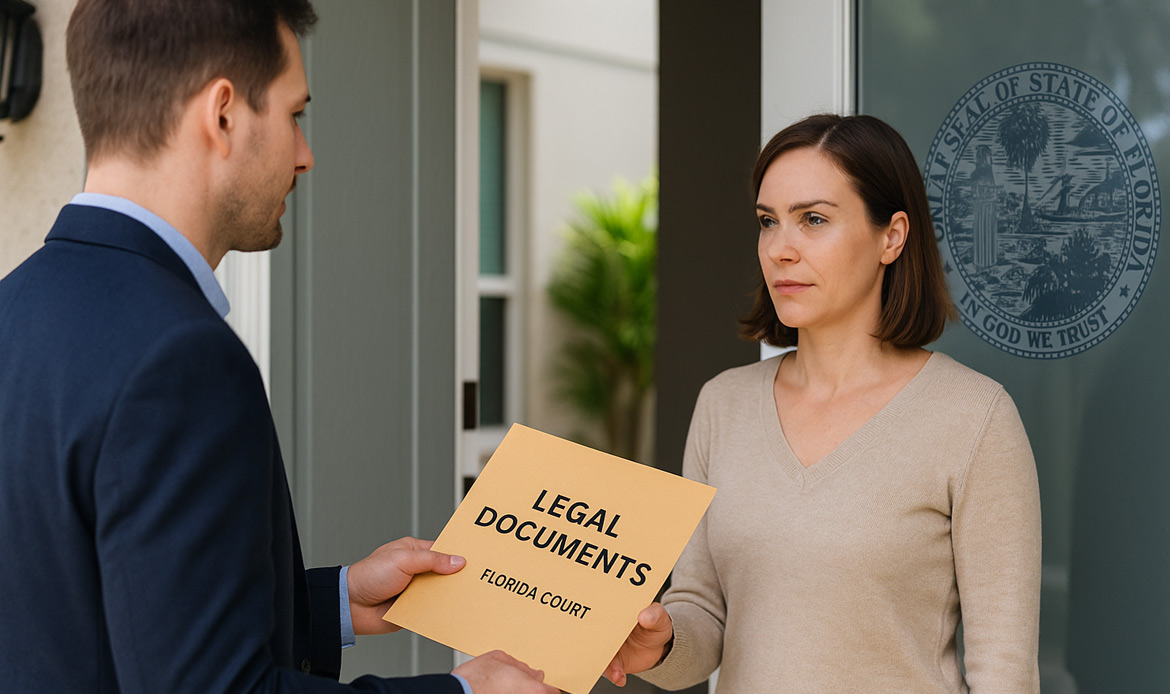Introduction: Why the “Who” Matters
When it comes to legal proceedings in Florida, how and who serves court documents is just as important as the documents themselves. Many people wrongly assume that anyone over 18 can hand over papers and call it a day. But in Florida, it’s not that simple.
If you fail to use a properly authorized process server, your entire case could be delayed—or worse, dismissed.
This 2025 guide will break down exactly who can legally serve court documents in Florida, and why cutting corners can cost you more than just time.
Florida’s Legal Framework: What the Statute Says
Under Florida Statutes §48.021 and §48.27, only certain individuals are authorized to serve process. This authority is regulated by both state law and county-level rules, which means not all parts of Florida operate the same way.
There are two main types of legally authorized process servers in Florida:
- Sheriff’s Office Process Servers
Every county in Florida allows the sheriff’s department to serve court documents. In some smaller counties, this may be your only option. However, sheriffs are often overburdened, leading to delays. - Certified Private Process Servers
In many counties, especially larger ones like Miami-Dade, Broward, Orange, and Hillsborough, private individuals can become certified or appointed by the court to serve legal documents.
Requirements to Become a Private Process Server
To legally serve documents as a private process server in Florida (in counties that allow it), individuals must:
- Be at least 18 years old
- Pass a background check
- Complete any required training or testing (varies by county)
- Carry certification or court appointment papers
- In some counties, post a surety bond (usually around $5,000)
Counties may have a standing order or certification program—for example:
- Miami-Dade and Broward: Have detailed certification programs and lists of approved servers.
- Lee County: Operates primarily through the sheriff unless otherwise permitted by the court.
- Hillsborough: Allows court-approved servers via the Administrative Office of the Courts.
Who Cannot Serve Process
Here’s who is not allowed to serve legal documents in Florida:
- A party to the case (plaintiff or defendant)
- A friend or relative doing you a favor
- A random individual over 18 without certification
- A person not bonded or approved in that county
Using the wrong person can render your service invalid—which could get your motion or lawsuit thrown out.
Why Using a Certified Professional Matters
Hiring a certified Florida process server ensures:
- Legal compliance with all state and county laws
- Timely and professional delivery
- Proper documentation via Affidavit of Service
- Court-accepted proof of service without delays or objections
If someone tries to “DIY” this step and gets it wrong, the opposing party can motion to dismiss based on insufficient service of process.
Conclusion: Don’t Gamble With Your Case
In Florida, who delivers your legal documents matters just as much as what’s inside them. Only use certified professionals or sheriff-appointed personnel to ensure your case isn’t delayed or dismissed.
At Ody Process, we’re fully certified, court-compliant, and serve all 67 counties in Florida. Whether you’re an attorney, business, or individual, you can trust us to do it right—every time.


